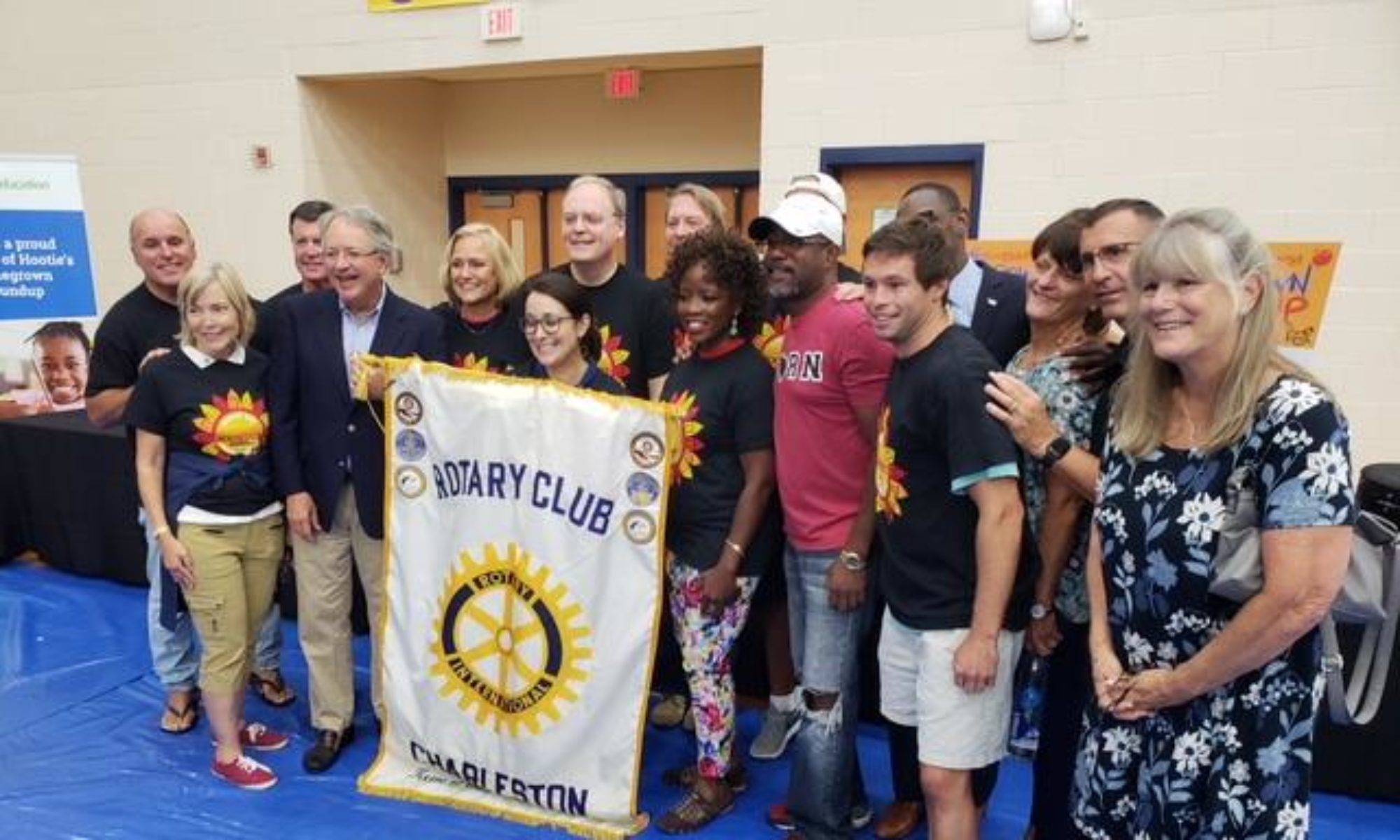How The
April 12, 2005 — Channing Proctor, a newly inducted Rotarian gave a heartfelt and moving talk about the events which led him to start the Charleston Miracle League, an organization devoted to giving mentally and physically challenged children the chance to play baseball.
Channing graduated from the Citadel in 1991 where he played baseball. Upon graduating he admitted to having the same goals as most just entering the workforce: “to make as much money as possible in as short a period of time as possible.” Channing moved to Atlanta and proceeded to do just that. Within 10 years he was running a medical sales operation covering the entire Southeast, and he and his wife were living in a great house, driving nice cars and seemed to have all the trappings of wealth and success. One day, Channing was escorting visitors through a local hospital when he happened to run into one of his former high school teachers. It was a bittersweet reunion. His friend and former teacher happened to be a patient in the hospital because she was dying of breast cancer. This event caused Channing to begin re-evaluating his life’s goals.
In the process of self-examination Channing identified three goals which were impor- tant to him. The first was his desire to be a good husband and father. The second goal was his long-held wish to write a book about an athletically talented young boy who leaves the game of baseball but who eventually returns. He already had the title, The Seasoned Rookie. Finally, Channing wanted to bring his family to live in Charleston. With these three goals in mind, Channing approached his wife who eventually agreed and supported the changes.
While Channing was writing his book, he happened to catch a news story which captured his imagination. The story was about a baseball program in Conyers, Georgia where handicapped children could play baseball on a special field. Because of his passion for the game, he tracked down the leaders of the program and offered to donate $1.00 from every book he sold. In turn, they urged him to come watch a game. It was while watching the children in Conyers play baseball that Channing recognized the passion to which he wanted to devote his energies. He wanted to give mentally and physically handicapped children an opportunity to share and participate in the game he loves so much, baseball.
At first Channing could not get anyone interested in his idea. Nobody would even agree to serve on his board. Undeterred, he hit on an idea guaranteed to generate a lot of attention and get the ball rolling. He decided to donate his beloved 1965 Ford Thunderbird as a means to raise the money to start the Miracle League. Channing aired the Live Five news clip of that fundraising effort in which $25,000.00 was raised. In late summer 2004, the Charleston Miracle League broke ground on their new baseball field, and Opening Day took place in November 2004. Sixty kids showed up to play along with 500 spectators and volunteers. The television news coverage showed the smiles, excitement, and joy on the faces of everyone involved.
The Miracle League sponsors an eight-weekend spring and fall season. Children ages 5 to 18 who have a physical or mental challenges are invited to play. There are six teams, and games are held on Saturdays at , and . Each player is assigned a special buddy to help them while they play.
Channing urged anyone who might be interested to come out and watch a game. Joe Griffith Miracle Field is located west of the Ashley off Play- ground Road. There are many opportunities to volunteer, and to do so in any capacity that one might wish. One member asked whether opportunities exist for businesses to get involved and Channing answered affirmatively. Business involvement could range from sponsoring a team to donating much needed equipment such as team t-shirts. More information and registration forms can be obtained on their website: www.charlestonmiracleleague.org.
In other business. . .
Amy Jenkins gave the invocation and led us in the Pledge of Allegiance, and David Ginn welcomed visiting Rotarians and guests. Bucky Knowlton offered Health & Happiness, and President Mark made an announcement regarding the upcoming Open House. He also acknowledged and reciprocated a toast from the Rotary Club of South Africa. Bill Eaton asked for support for the Alzheimer’s Educational Support program. Three new members were inducted: Kenneth Fox, Dan Parker, and Channing Proctor. Earl Walker introduced our speaker (and new member) Channing Proctor.
— Helen Harloe, Keyway Committee

